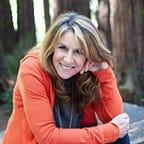Old, Elderly, Middle-Aged or Mature?
How we talk about people who are aging matters
I will turn 68 this summer and I’m not sure how I want to be called — old, older, elderly, mature, senior.
I certainly fit the definition of a “senior citizen” — I am on Medicare; I get store, transit, and theater discounts; I am eligible for another COVID booster; I have wrinkles and age spots and, of late, jowls — all the markers of advanced age. Like many people in their 60s and older, I don’t feel old, as I wrote when I turned 65. And as research has shown, “subjective age,” feeling younger or older than you actually are, has a big effect on your physical and mental health.
But in the eyes of everyone else, well, I’m certainly not young.
So, what to call me and people around my age?
A recent study by Denis Jamet, director of the Linguistics Research Center at Jean Moulin University, and Christophe Coupé, of CY Cergy Paris University, titled “A study of the semantic preference and semantic prosody associated with the denominations of people of a certain age,” explores how the terms we use to describe people past a certain age, while similar, “are not used interchangeably, and convey different usages.”
